Chalmers accused of squandering budget ‘Lotto windfall’
Jim Chalmers has stridently rejected claims he squandered nearly $350bn of windfall revenue gains despite the budget forecasting a decade of deficits.
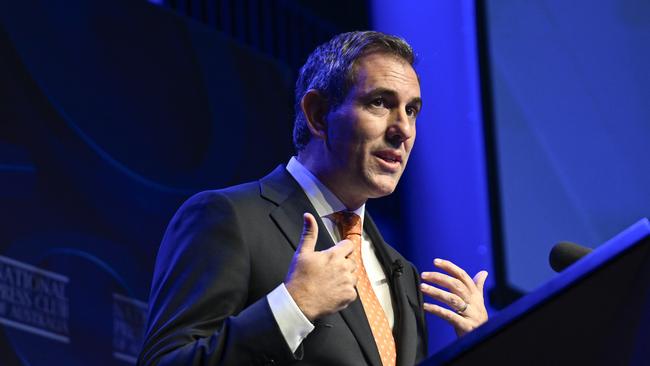
Jim Chalmers has stridently rejected claims he squandered almost $350bn of windfall revenue gains, despite the budget forecasting a decade of deficits, as Labor moved to wedge Peter Dutton by trying to ram legislation through parliament to set up an election fight over a $5-a-week tax cut.
But while the Treasurer declared his fiscal responsibility was showcased by saving “most” of the unexpected revenue upgrades since Labor was elected, AMP chief economist Shane Oliver said the government was on track to spend 96 per cent of the revenue upgrades since December’s mid-year budget update.
This is a reversal of the Albanese government saving 90 per cent of the windfall tax revenue in its first budget, reducing the proportion of saved revenue upgrades to 69 per cent by 2028-29.
“This is not good management, it’s good luck,” Mr Oliver said.
“It’s not doing the hard yards like Keating, who was more constrained in spending.
“I am amazed that the Treasurer is saying they have done all this hard work but really it’s like they have won the Lotto.”
In an attempt to persuade Australians that a change of government in May would be risky, the Treasurer used his post-budget speech to declare the world was on the verge of its fourth economic crisis in 17 years.
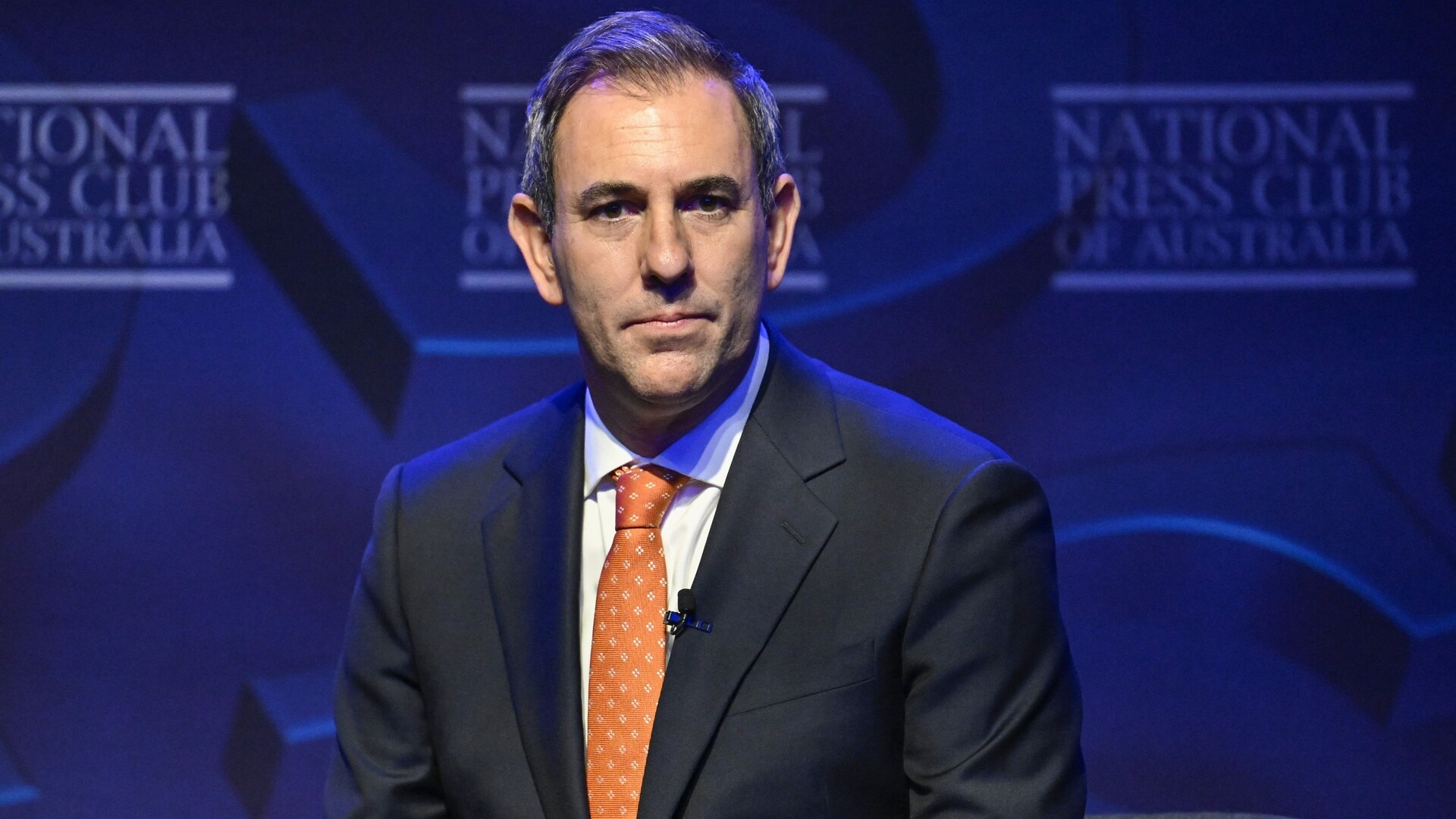
He said escalating trade tensions driven by US President Donald Trump’s tariff policies “now risk, if not represent” an economic shock that he likened to the ones experienced through the global financial crisis, the Covid pandemic and the post pandemic inflation spikes.
“The big story of the global economy, and our own economy is, this dark shadow which is being cast by escalating trade tensions, which are very concerning to us,” Dr Chalmers said.
“But also a slowdown in China, a war in Eastern Europe, the collapsing ceasefire in the Middle East, political uncertainty in other parts of the developed world.”
The Treasurer’s post-budget sales pitch comes as former treasurer Peter Costello labelled the Albanese government’s fiscal strategy “complacent and underwhelming”, condemning Labor for failing to tackle debt.
The Coalition voted against Labor’s income tax package in the House of Representatives on Wednesday morning, with Labor confident it had the numbers to pass the bill through the Senate in a vote scheduled for late on Wednesday evening.
Dr Chalmers declared the Opposition Leader “wants to cut everything except income taxes for workers”.
He said a key part of the Albanese government’s re-election pitch would be the “progress we have made together in the economy and repairing the budget”.
This is despite the budget forecasting $179.5bn of deficits over the next five years, with net debt to rise from $556bn to $768bn by the end of the decade.
Gross debt is forecast to grow to $1.2 trillion by 2028-29, with higher income taxes from next decade the only chance of balancing the budget and beginning to pay off debt from 2035-36.
Interest payments on commonwealth debt will be more than $38bn by the end of the decade, with a 10 per cent yearly growth rate until mid next decade higher than the NDIS, defence, health, aged care and childcare.
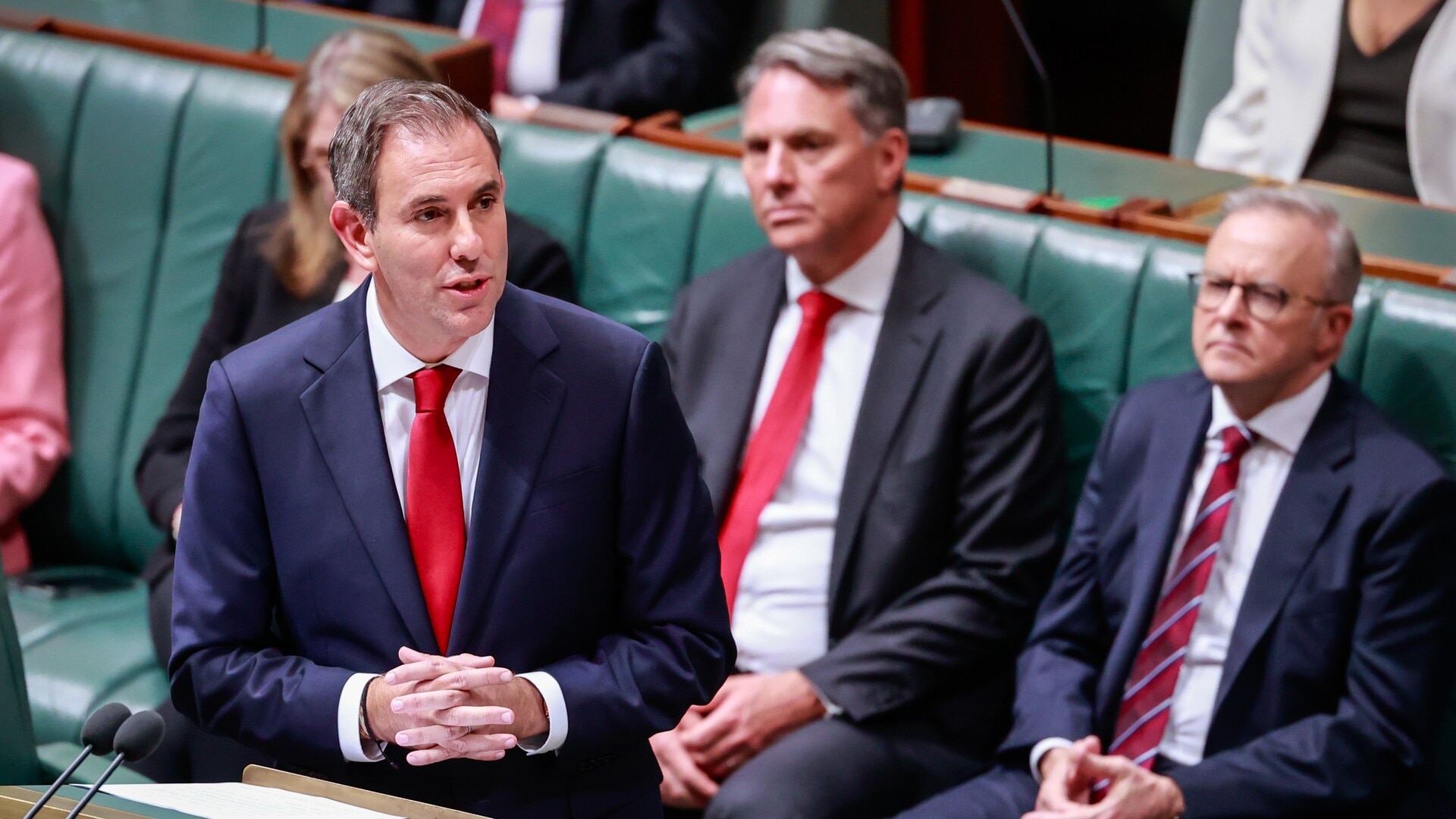
Despite the government benefiting from massive revenue upgrades in its first two years on the back of higher than expected commodity prices, employment and inflation, next year’s deficit of $42bn is similar to what was forecast for 2025-26 ahead of the election.
When asked by The Australian if his claims of good economic management played on voters’ lack of understanding of the revenue upgrades, Dr Chalmers said he had banked the unexpected revenues more than other treasurers had.
“Our predecessors used to spend most of it,” he said, adding the government had reduced debt by $207bn since it was elected – “the biggest nominal improvement in the budget we’ve ever seen”.
Mr Costello slapped down Dr Chalmers’ assertion that he was using the upgrades to reduce debt. He pointed to the Treasurer’s budget section on debt that noted the government was “reducing gross debt as a share of the economy over time”.
“This means the government can grow debt as the economy grows (since the share remains constant). As the economy grows, the government should be reducing debt because, as we know, debt will certainly blow out if the economy falters,” Mr Costello said.
“It gets worse to see that debt has grown during the greatest boom in our trading conditions in more than half a century.
“And when we look at the share of gross debt to GDP forecast in the budget, it is rising this year, and the one after that, and the one after that.
“So even though the government set itself the lowest possible target it still failed to meet it.
“This will add to the burdens of future generations.”
KPMG Australia chief economist Brendan Rynne said Labor was sending Australia towards a “bigger government” future.
“We have $200bn in deficits over the next four years, so while ($17bn) for tax cuts is small in the scheme of things, that decision shows a lack of preparedness to take on big reform to help buffer us from an ageing population, a declining workforce and an increased tax dependency on that smaller workforce,” he said.
Dr Chalmers rejected criticism he did not offset the $17.1bn of tax cuts or $34.9bn of new spending in this budget, arguing the government’s credentials were showcased by finding $2bn on “savings and reprioritisations”.
“This election will be about the strong foundations we have laid, the better future we are building, and the risk of our opponents wrecking it all,” the Treasurer said.
“It will be a referendum on Medicare. A simple choice between Labor cutting taxes and helping with the cost of living and Peter Dutton’s secret cuts which will make Australians worse off.”
Mr Dutton declared the government had “wrecked the economy”.
“An average Australian family with a mortgage is $50,000 worse off under this government,” the Opposition Leader told Sky News.
“Productivity has collapsed, debt goes to a trillion dollars, they’re bringing in two million people over five years, which is going to really crush the hopes of homeowners.”




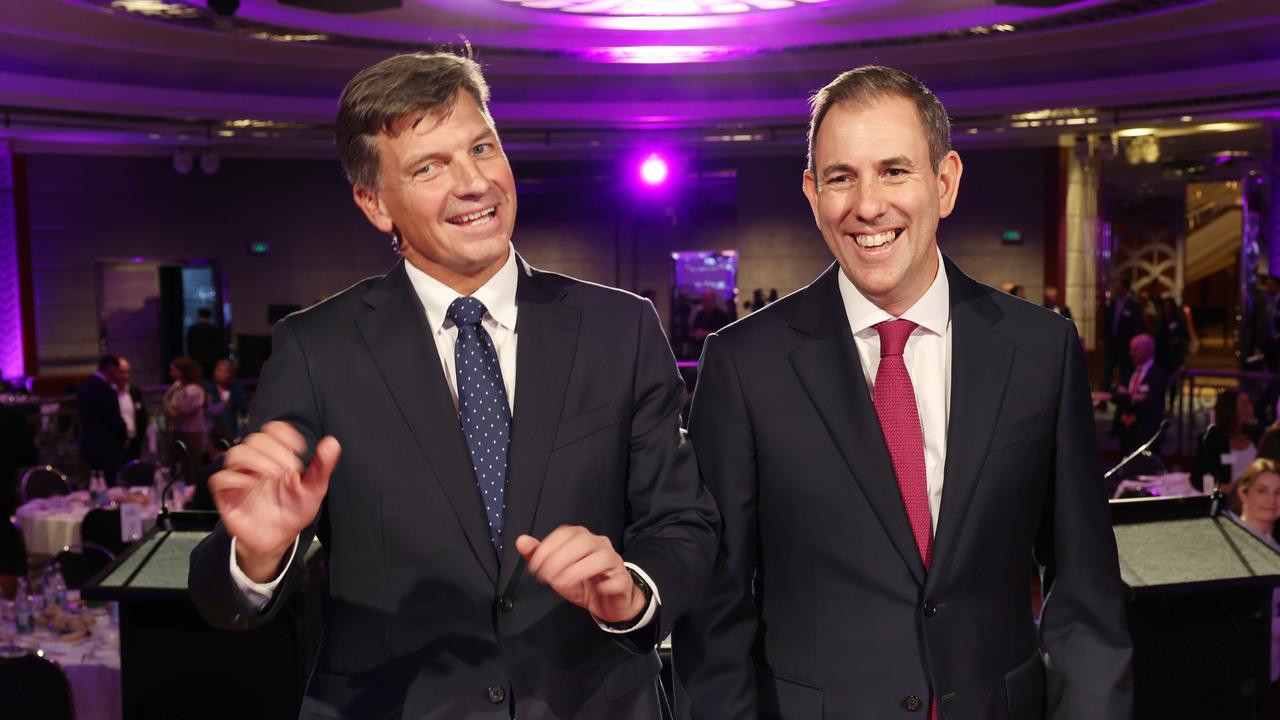
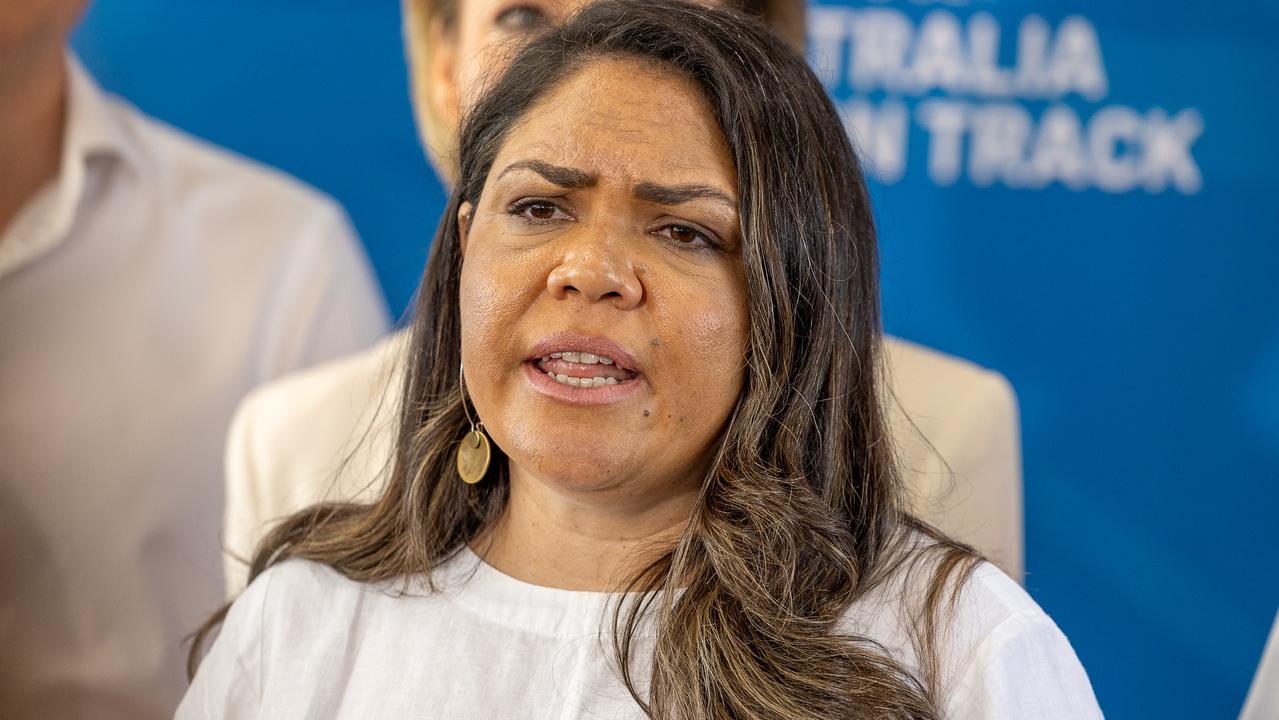
To join the conversation, please log in. Don't have an account? Register
Join the conversation, you are commenting as Logout